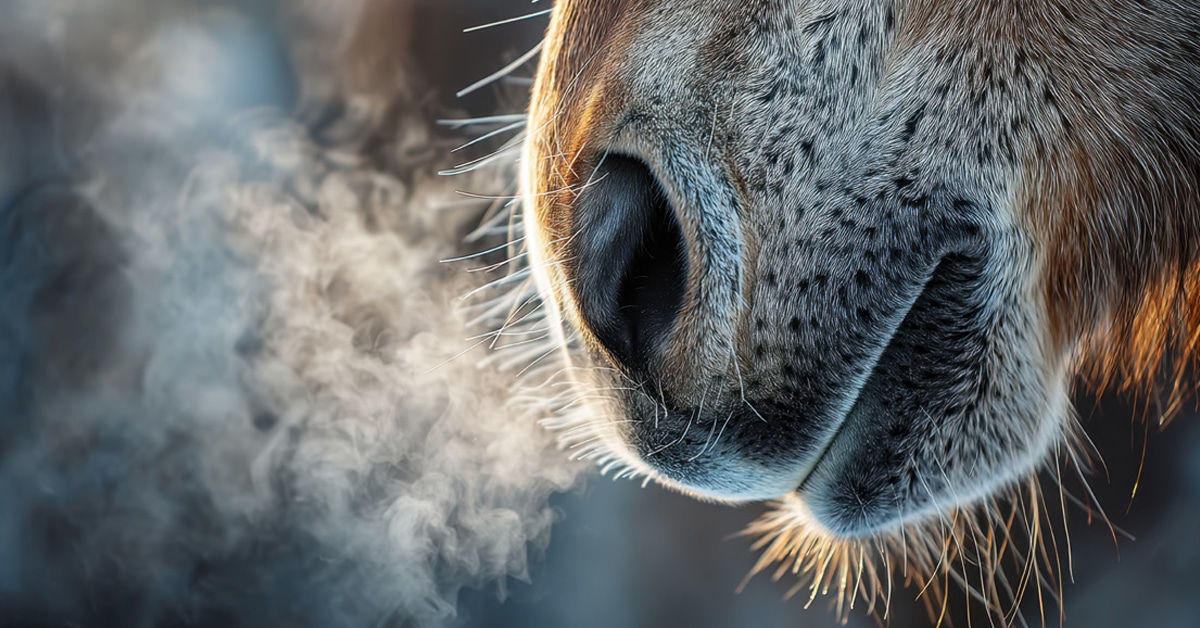The hooves and hair coat of the horse, similar to our own nails and hair, are largely made up of the protein keratin. In effort to support hoof and hair health, it is important that the nutrients that contribute to keratin synthesis are in adequate amounts in your horse’s diet. If there is a deficiency – you are seeing dull coats and/or crumbly hooves – what might you supplement to toughen the hooves and add shine?
Keratin is Crutial for Healthy Hooves & Hair
The type of keratin found in hoofs and hair is called -keratin, and because it is a protein, it is made up of many amino acids. (Recall that protein is a chain of amino acids, similar to letters making up words. There are only about 20 amino acids, but these can be arranged in numerous ways with potentially thousands of amino acids to make up all of the different kinds of protein). The major amino acids found in keratin are cysteine, alanine, leucine and arginine. Chains of these amino acids tend to arrange in paired coils, held together by sulfur bonds. Many of these pairs together form intermediate filaments, the basic structure of -keratin, and these align together to form keratin matrices, which are embedded within an intracellular cementing substance. Once a keratinocyte (keratin synthesizing cell) is “full” of these keratin matrices, the cell dies and becomes ‘cornified’ – developed into tough protective structures. It is this cornified keratin that is the main component of hair and hooves.
To support keratin synthesis, the horse must have sufficient cysteine, alanine, leucine and arginine. Alanine is considered a “non-essential” amino acid for horses, in that it does not need to be provided for in the diet, because horses have the ability to make alanine in the liver. Leucine and arginine are essential amino acids and should be provided for in the diet, though arginine can also be made from glutamine, another amino acid. Both leucine and arginine are also relatively plentiful in an equine diet that contains whole grains and/or soybean meal. Cysteine is considered a semi-essential amino acid, as it can be synthesized from another amino acid, methionine, provided that methionine is present in sufficient amounts. Both these amino acids are unique in that they both contain the mineral sulfur, which ultimately leads to the bonds between keratin chains. The best natural sources of methionine (and thus cysteine) that can be fed to horses are whey protein and/or fishmeal. Synthesized dl-methionine is also commonly added to commercial horse feeds.
The Role of Biotin and Zinc
Biotin is a B vitamin that functions as a cofactor in many enzymatic reactions within the body. Of note, biotin plays a role in the synthesis of keratin and the intracellular cementing substance. The microbial organisms found within the horse’s digestive tract synthesize biotin in sufficient quantities. The microbial organisms found within the horse’s digestive tract synthesize biotin in sufficient quantities that it does not need to be supplemented, but can be if an issue develops.
The mineral zinc is also important in the proliferation and differentiation of keratinocytes. In fact, skin is the third tissue with respect to abundance of zinc, after muscle and bones.
Zinc deficiency results in hair loss and skin lesions in humans and horses. Horses can tolerate relatively high levels of zinc, although excess dietary zinc may decrease copper absorption. Therefore, when zinc is supplemented to a diet, copper may also need to be increased.
Can Supplements Help?
A quick search of equine hoof supplements shows that the most common ingredients are biotin, methionine, copper and zinc, although some may also contain calcium, selenium and omega-3 fatty acids. Research has established that supplemental biotin in amounts of 20-40 mg per day can help improve a horse’s hoof wall integrity, strength and growth. The microbes within the horse’s digestive tract also synthesize biotin, and both alfalfa and oats have moderate quantities of biotin.
Neither gelatin nor zinc supplementation showed any effect on hoof strength or elasticity in one study, and another study that provided supplemental amounts of copper, manganese and zinc did not find any benefit to hoof strength. Another study with these same three minerals found that they were incorporated into the hair coat, but did not report any benefits.
Some supplements contain additional selenium, despite no research regarding any benefit. Excessive selenium can result in the selenium replacing the sulfur in keratin bonds, potentially decreasing hoof quality; in fact, a symptom of selenium toxicity is hoof cracks and rings.
Equine hair coat supplements also tend to contain biotin and methionine, with some also containing zinc and copper. Many contain various omega-3 fatty acid supplements, with sources from flaxseed or chia seed. In my own experience, fish oil supplementation resulted in excellent hair coats compared to other oils. Flaxseed has also been shown to be beneficial for horses prone to “sweet itch,” which is summer seasonal recurrent dermatitis caused by an allergic reaction to midge bites. Other research regarding nutritional supplements on hair coat quality is lacking.
If a horse is fed a well-balanced diet, he should be able to support proper hoof and hair coat health. However, biotin is a solid choice to supplement with for potentially improving hoof quality, and omega-3 fatty acid supplementation, ideally from fish oil, will likely improve hair coat quality.
The Latest









